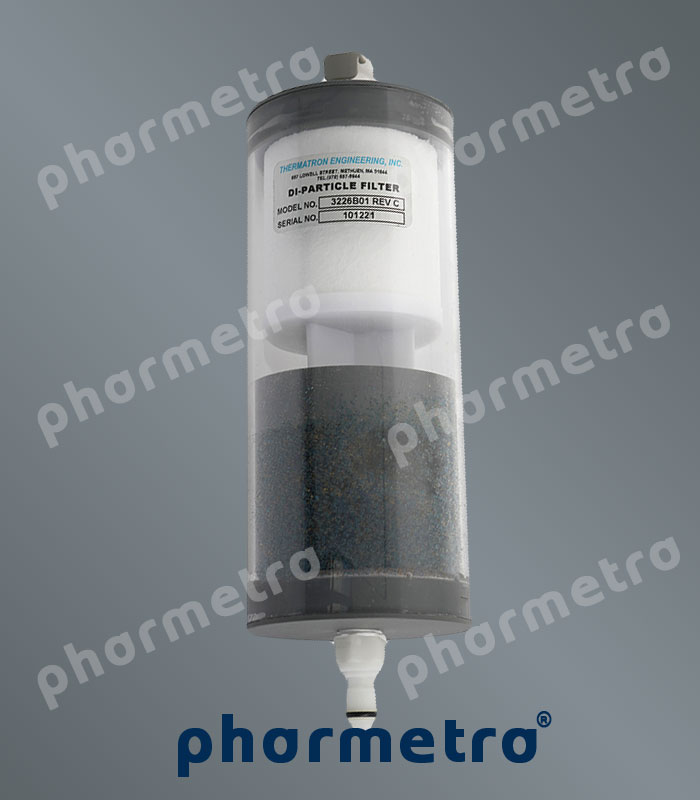The Critical Role of Deionization Filters in Laser Cooling Systems

Laser technology is at the heart of many modern medical and aesthetic devices, powering treatments like hair removal, skin rejuvenation, and more. However, the efficiency and safety of these high-precision systems rely heavily on proper maintenance and supporting components, one of which is often overlooked: the deionization filter. In laser cooling systems, deionization filters play a vital role in ensuring safe and reliable operation by maintaining the quality of the cooling water. This article explores the purpose of deionization filters, how they work, and why they are indispensable for protecting sensitive laser equipment.
Why Cooling Systems Matter in Laser Technology
Laser systems, especially those used in medical and aesthetic applications, generate significant amounts of heat during operation. To prevent overheating and ensure consistent performance, these systems are equipped with cooling loops that circulate water to dissipate heat from critical components. However, the water used in these systems must meet specific standards to avoid damaging the equipment. This is where the challenge arises: regular tap or city water, while readily available, is not suitable for direct use in laser cooling systems due to its natural composition.
Tap water contains various dissolved ions, such as calcium (Ca²⁺) and chloride (Cl⁻), which make it electrically conductive. In a laser system, where high-voltage components like flashlamps are often in direct contact with or exposed to the cooling water, conductive water poses a serious risk. If the water conducts electricity, it can lead to electrical arcing or short circuits, potentially causing catastrophic damage to the laser’s sensitive components. This not only disrupts operations but can also result in costly repairs or replacements.
The Purpose of Deionization Filters
Deionization filters are specifically designed to address this issue by purifying the cooling water used in laser systems. Their primary function is to remove ions from the water, transforming it from a conductive medium into a highly resistive one. By stripping away both positive (cations) and negative (anions) ions, deionization filters ensure that the water cannot easily conduct electricity, thereby safeguarding the high-voltage components within the laser system.
The process of deionization involves the use of special resins—cation exchange resins and anion exchange resins—embedded within the filter. These resins work by attracting and capturing oppositely charged ions as water passes through the filter. For example, cation exchange resins bind to positively charged ions like calcium or magnesium, while anion exchange resins capture negatively charged ions like chloride or sulfate. The result is water that is nearly free of ionic impurities, significantly reducing its conductivity.
Benefits of Deionization Filters in Laser Cooling Systems
The use of deionization filters offers several critical benefits that directly impact the performance and longevity of laser equipment:
- Increased Water Resistivity:
By removing ions, deionization filters increase the resistivity of the cooling water, ideally to a range of 1 to 2 Megohm/cm, with the highest purity levels reaching up to 18.3 Megohm/cm. High resistivity means low conductivity, which is essential for preventing electrical interference in the cooling loop. - Prevention of Electrical Arcing and Failures:
Conductive water can cause electrical arcing—a phenomenon where electricity jumps through the water between components—leading to short circuits or damage. Deionization filters eliminate this risk by ensuring the water remains non-conductive, protecting sensitive parts of the laser system. - Safe and Reliable Operation:
With deionization filters in place, laser systems can operate safely even under high-voltage conditions. This reliability is particularly crucial in medical and aesthetic settings, where downtime or equipment failure can disrupt client services and impact business operations.
Why Deionization Filters Are Non-Negotiable
Without deionization filters, the cooling water in laser systems would retain its natural conductivity, posing a constant threat to the equipment’s high-voltage components. Electrical arcing or short circuits caused by conductive water can lead to irreversible damage, resulting in expensive repairs, safety hazards, and operational delays. For clinics and professionals relying on laser devices, such risks are unacceptable.
Deionization filters act as a protective barrier, ensuring that the cooling water meets the stringent purity requirements necessary for laser operation. They are not just an optional accessory but an essential component of any laser cooling system, especially in high-stakes environments like aesthetic clinics where precision and safety are paramount.
Conclusion
In the intricate world of laser technology, every component plays a crucial role in maintaining performance and safety. Deionization filters stand out as unsung heroes in laser cooling systems, working behind the scenes to remove ions from water and prevent electrical conductivity. By increasing water resistivity and eliminating the risk of arcing or short circuits, these filters protect high-voltage components and ensure the smooth, reliable operation of laser equipment.
For clinic owners, technicians, and aesthetic professionals, understanding the importance of deionization filters is key to maintaining the longevity of their devices. Regular maintenance and timely replacement of these filters are vital steps in safeguarding your investment and delivering consistent results to clients. Have you checked the condition of your laser system’s deionization filter recently? Ensuring its proper function could be the difference between seamless operation and costly downtime.
